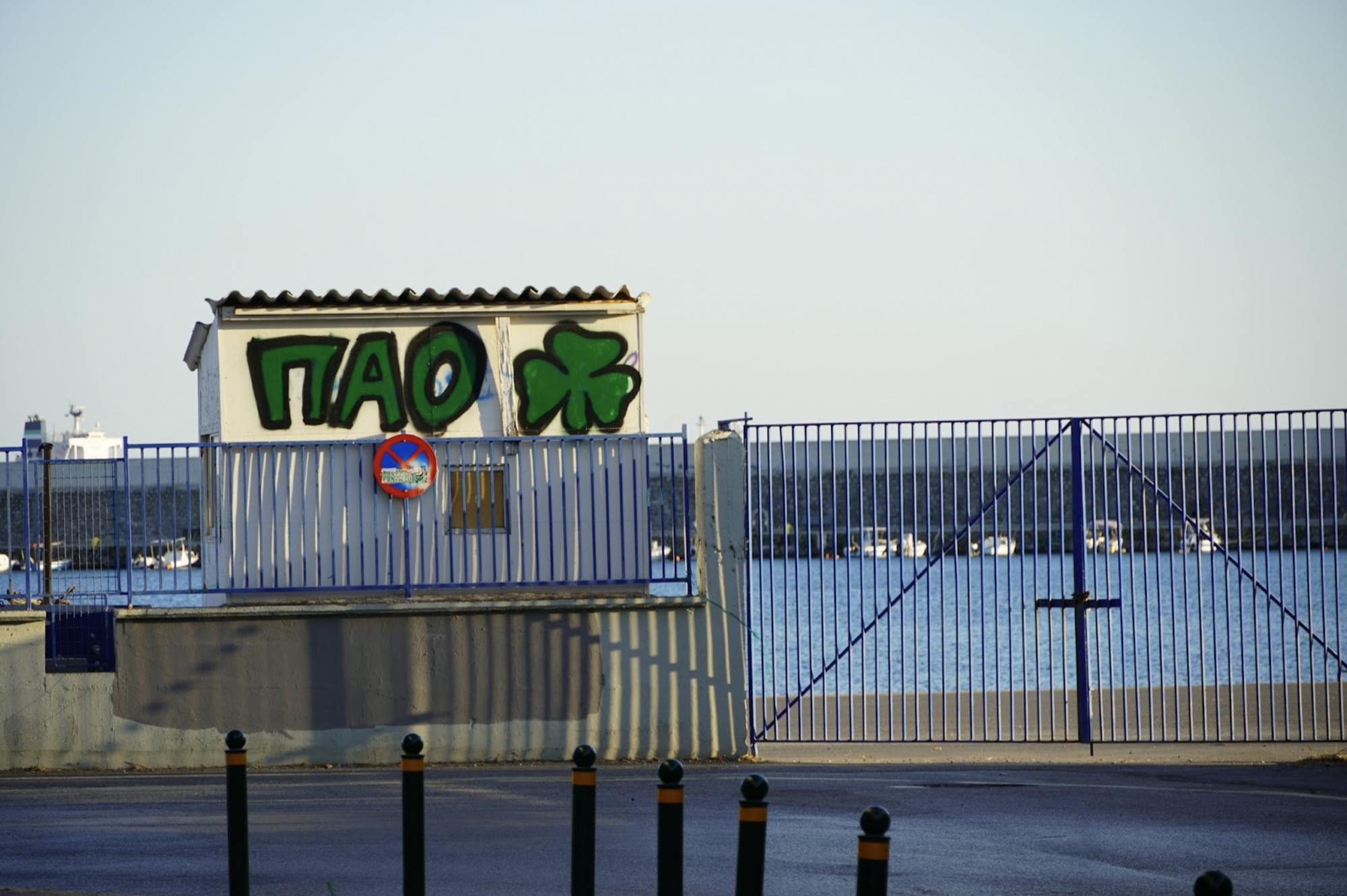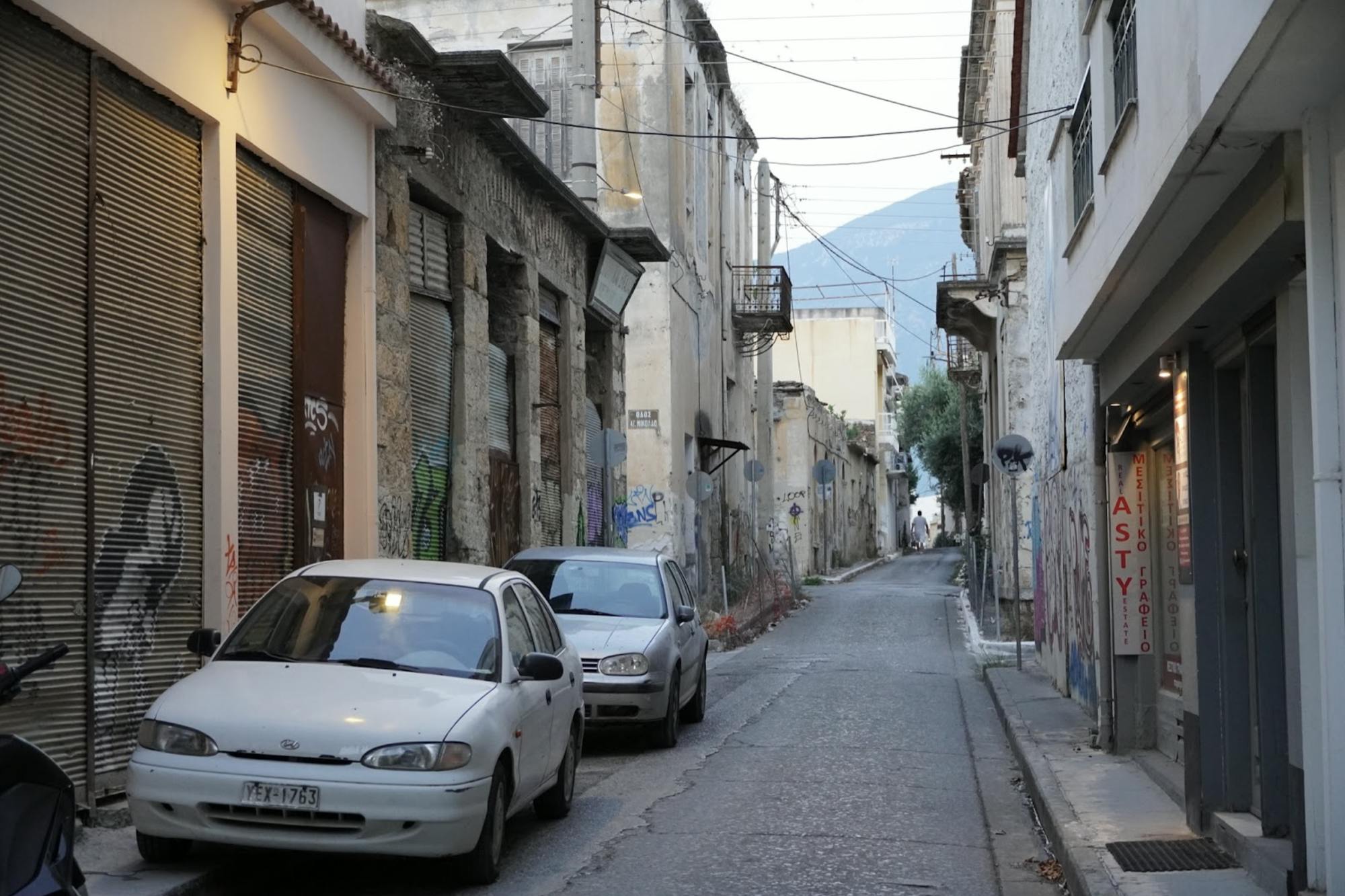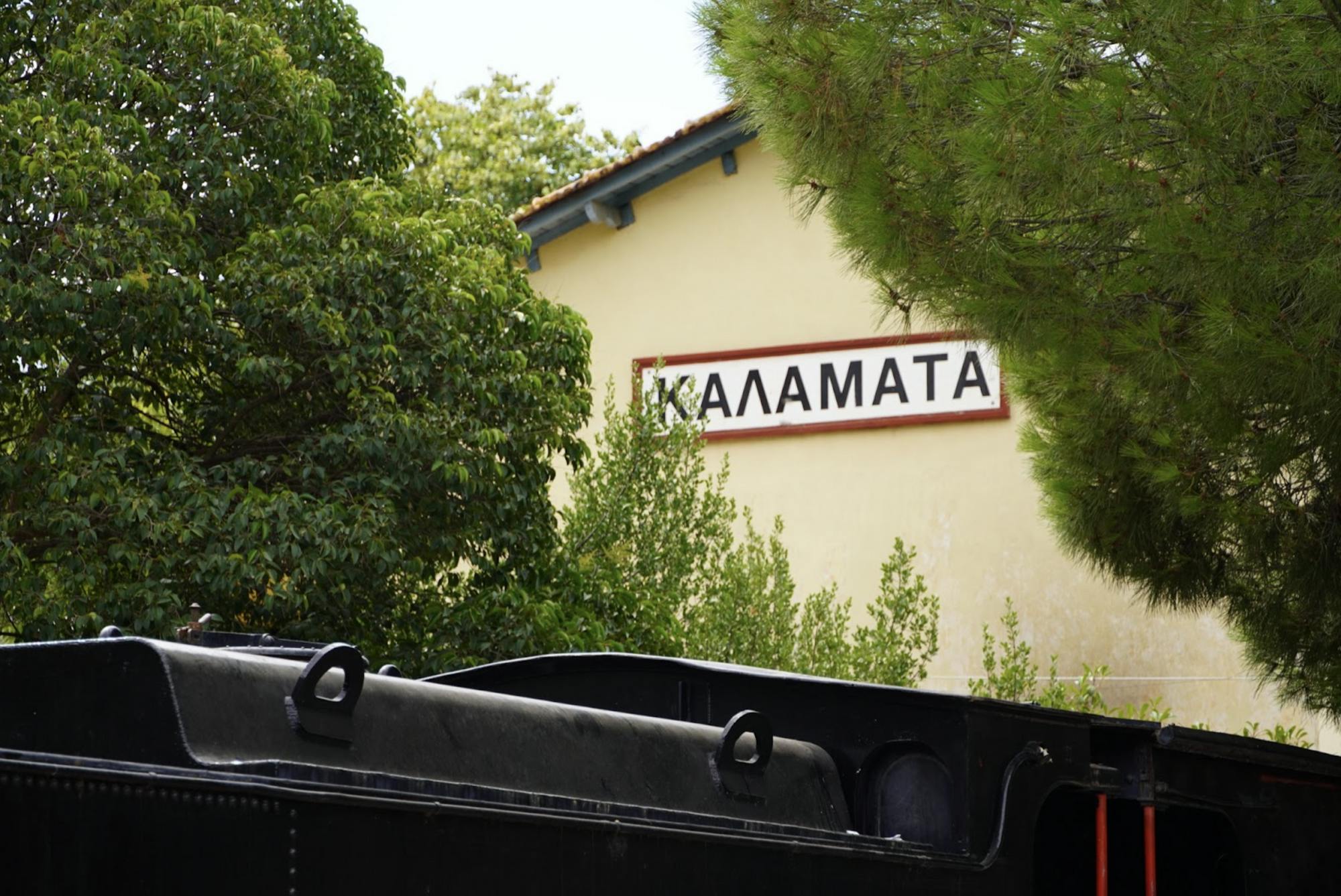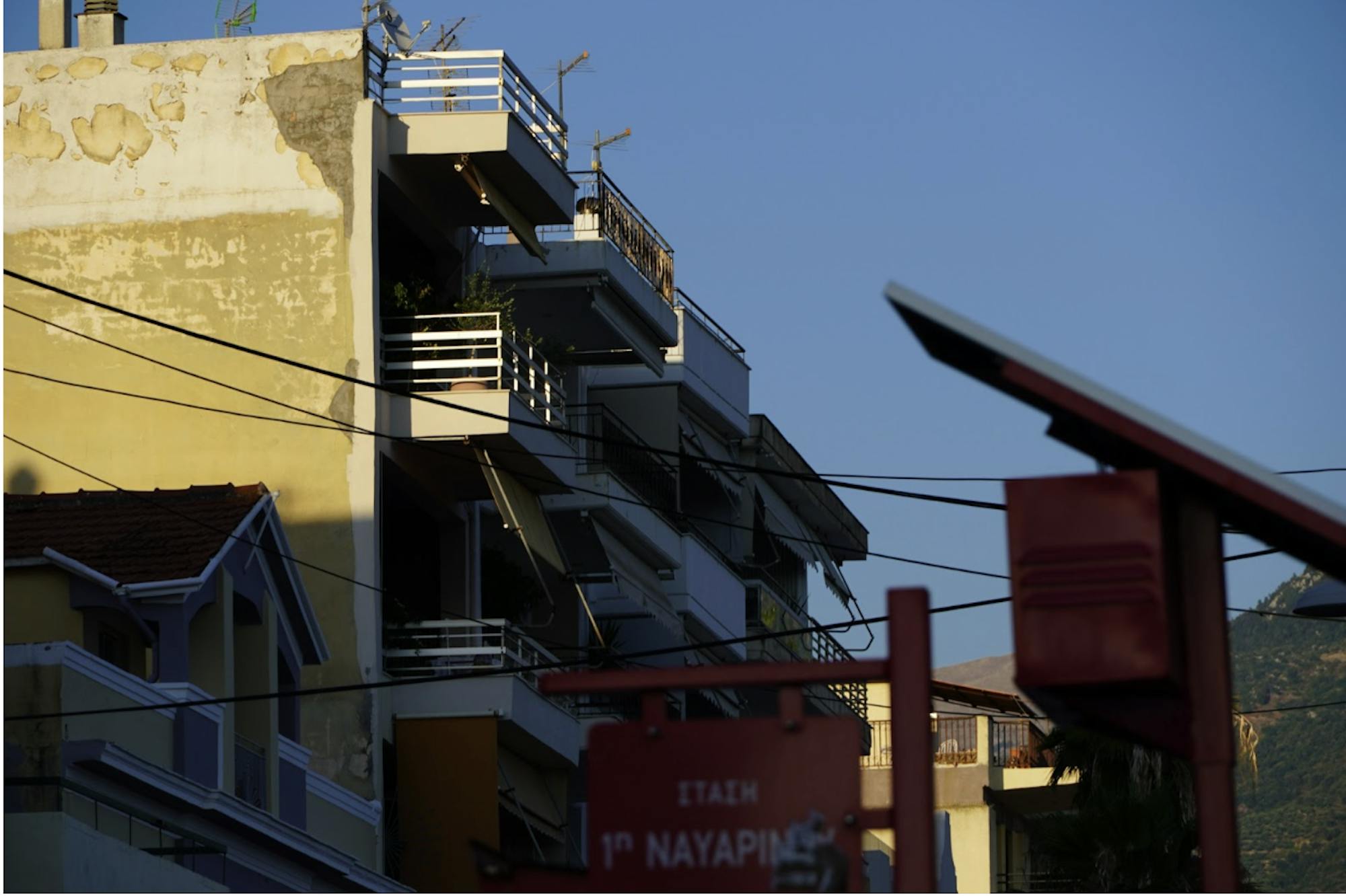If you haven’t spent much time in the city of Kalamata, Greece, you might be surprised that many locals have stories to share about connections to friends or family members 4,700 miles away in Lowell, Mass.
A historical center of Greek immigration, Lowell formalized its relationship with Kalamata by electing to become sister cities. In 2022, Lowell chose to “establish and officially recognize a historical, cultural, and humanitarian link with Kalamata, Greece,” according to the charter that was submitted by the Lowell City Council.
Lowell sits on the Merrimack River about 30 miles north of Tufts’ Medford/Somerville Campus. It is known as one of the birthplaces of the Industrial Revolution in America. The city used to be a principal site of textile manufacturing, where long brick factory buildings and smokestacks once lined the banks of the canals.
Kalamata, on the other hand, presses against the coast of the Peloponnese peninsula in southern mainland Greece near Sparta. Black Kalamata olive trees cover the mountains that climb steeply from the shore. Rows of balconies stick out from light yellow apartment buildings and townhouses sit tightly packed along narrow streets.
Dr. George Malaperdas has lived in Kalamata for the past 18 years and works at the University of the Peloponnese in the Department of History, Archaeology and Cultural Resources Management.

The harbor wall in Kalamata. The paintings reflect support for a football club and Kalamata’s place as the birthplace of the Greek Revolution against the Ottomans in 1821.
“The most amazing thing that I can do is that [when] I finish my work, [I walk] five minutes, I’m at the beach,” Malaperdas said.
Drawn by economic opportunity, many immigrants left the Peloponnese and found a new home in Lowell. Sokhary Chau, current mayor of Lowell, works at the Lowell City Hall, located in the traditionally Greek neighborhood, the Acre.
“The Greek community helped build Lowell,” Mayor Chau said. “I think it’s only fitting in our time now to link back, officially, with the Greeks in Greece.”
Ed Kennedy, Massachusetts state senator representing the First Middlesex District and former Lowell mayor, commented on the large concentration of not only Greek, but specifically Kalamatan residents in Lowell.
“There seems to be a lot of families that, for whatever reason, came to Lowell that were from Kalamata.” Senator Kennedy said.
After months of correspondence between the cities and delays due to COVID-19, Lowell finally welcomed an official delegation from Kalamata in April 2022, including Kalamata mayor Athanasios Vasilopoulos.
“I can say this because later on we went to visit and felt the same way,” Chau said. “When they came to visit, they felt like they were at home. They felt such a great welcoming by friends that were almost like families to them.”
The two cities’ meeting demonstrated that both were serious about creating a meaningful, lasting bond.
“[It was] one of the first times that we have a dignitary of that status, and to establish something real, something important, he came to visit,” Mayor Chau said. “Afterward, he invited us to go back to visit his hometown, Kalamata.”
In Sept. 2022, Lowell sent its own delegation to visit Kalamata. The delegation included Chau, Kennedy and Judith Hogan, Middlesex Community College dean. Also visiting were former Lowell Mayor Bill Samaras; Bill Kafkas, president of the Federation of Hellenic-American Societies; Arlene Parquette, UMass Lowell vice chancellor and Dimitrios Mattheos, Federation of Hellenic-American Societies board member.

A street in the center of Kalamata with its characteristic apartments full of balconies and sunshades.
During their visit to Kalamata, existing ties between the cities came into light. Kennedy recalled meeting with former business owners that had previously resided in Lowell.
“There was a couple [living in Kalamata] that used to own a restaurant in Lowell … [they] closed the restaurant and retired, and they moved to Kalamata,” Kennedy said. “It was almost like a little diner type restaurant … so it was good to see them as well.”

Graffiti near the Kalamata harbor supporting the Panathinaikos soccer team.
Chau observed how citizens with ties to both Greece and the U.S. have displayed a devotion to political and civic engagement.
“The Greek American citizens are very active, participate and engage with local politics, but they also keep up to date with what’s going on in Greece, even though some of them have been here multiple generations already,” Chau said. “And, the Greeks in Kalamata … they’re familiar with what’s going on in Lowell, in Massachusetts.”

Older townhouses and narrower streets in the city center of Kalamata.
Both cities are home to large student populations which are an important part of the economy and community. One of the goals of this sister city relationship is an exchange student program.
“We engaged in several workshops and meetings … where part of the discussion was about whether or not we would be able to have the [University of the Peloponnese] form a relationship with both Middlesex Community College and the University of Massachusetts Lowell,” Kennedy said.
Chau expressed how starting exchange programs out of Lowell have the exciting potential to inspire other cities to do the same.
“Middlesex Community College [is] already committed to providing five scholarships to students from Kalamata to come study at Middlesex Community College,” Chau said. “Imagine if you can do that with other cities and towns.”
Kalamata is not Lowell’s only sister city. In fact, Lowell has formal ties with at least 15 other cities around the world, including cities in Ukraine, Russia and France. Lowell’s penchant for sister cities comes from the wide range of backgrounds of its citizens.
“I think having sister cities with our city really reflects the diversity, because many of us came from different countries. Just like myself, coming from Cambodia to make this [my] home,” Chau said. “It’s very important for us, not just to have a good quality of life here, but for the next generation, the children, to preserve the language, the culture, the customs, the history.”
Additionally, the goal for Lowell’s sister city relationships are not only to bolster ties between its immigrants and their places of origin, but also to foster new dimensions of understanding.
“We want to have education exchange, student exchange, commerce, cultural, so we can understand each other better,” Chau said.
Greek American community efforts played a significant role in the development of Lowell’s sister city relationship with Kalamata.
“[Lowell and Kalamata’s relationship] is more unique, it’s more proactive, because it’s driven by the Greek community themselves … not only just by the Greek Americans in the city of Lowell, it’s by the Greek American community across the Commonwealth,” Chau said. “It’s really become a statewide support for Lowell to have this sister city relationship with Kalamata.”
Kalamata’s vibrant new connection with Lowell has forged an international connection which increases Kalamata’s global engagement. Long-term resident Dr. Malaperdas described Kalamata as a place of growth and potential.

The old Kalamata train station, which has now been converted into the Kalamata Municipal Railway Park, a public park full of trains that are used for club meetings and public festivals.
“It is a very fast-growing city,” Malaperdas said. “It has a lot of opportunities for people not only to work here … but [also] because of tourism.”
To Malaperdas, interacting with others is an integral part of Greek culture and lifestyle.
“It’s our culture to go outside, meet with other people, exchange opinions,” Malaperdas said. “It is really nice … it helps you not only in your work, but in your psychology.”
Chau agreed that personal relationships are at the root of the motivation to create sister cities between faraway communities.
“It’s nice that [there is] this international diplomacy, but from city to city … it’s not really [about] the government per se,” Chau said. “The whole idea behind sister cities is really a people-to-people relationship.”






